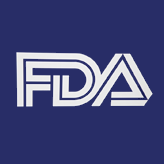FDA Approves Imatinib (Gleevec) for Pediatric ALL
The US Food and Drug Administration has approved imatinib (Gleevec) for the treatment of newly diagnosed Philadelphia chromosome–positive acute lymphoblastic leukemia (Ph+ ALL) in children.

The US Food and Drug Administration (FDA) has approved the tyrosine kinase inhibitor imatinib (Gleevec) for the treatment of newly diagnosed Philadelphia chromosome–positive (Ph+) acute lymphoblastic leukemia (ALL) in children. The drug is to be used in combination with chemotherapy for this patient group. Imatinib blocks BCR-ABL, a central tyrosine kinase enzyme, from phosphorylating and activating proteins downstream necessary for cancer development.
ALL affects approximately 2,900 children each year, making it the most common pediatric cancer. While only 3% to 5% of children with ALL are Ph+, intensive chemotherapy regimens cure fewer than 40% of these patients.
“We are pleased that the number of cancer medications for children are on the rise,” said Richard Pazdur, MD, director of the Office of Hematology and Oncology Products in the FDA’s Center for Drug Evaluation and Research, in a press release. “Today’s approval is the result of continuous interactions among the FDA, the Children’s Oncology Group and the National Cancer Institute to provide new and better treatments to American children with cancer.”
The trial that led to this indication for imatinib enrolled 92 children and young adults ages 1 to 21 years with Ph+ ALL-a pediatric ALL group considered very high risk, defined as patients who within 5 years of treatment have a greater than 45% chance of experiencing complications. The trial participants were divided into five cohorts, with each successive group receiving a greater duration of imatinib treatment in combination with chemotherapy. Prior to maintenance therapy, imatinib exposure was increased progressively in the five cohorts from 42 (cohort 1; n = 7) to 280 continuous days (cohort 5; n = 50). Imatinib 340 mg/m2/d was introduced into the chemotherapy regimen in steps. Before progression to the next cohort, toxicity was first assessed. Early results of the trial were published in 2009 in the Journal of Clinical Oncology.
In cohort 5, where 50 of the Ph+ ALL patients received imatinib for the longest duration, 70% of the patients had event-free survival of 4 years. With increasing duration of imatinib treatment, results showed patient deaths decreased.
The trial found no appreciable increase in toxicity when imatinib was added to the chemotherapy regimen. The most common adverse events observed with the combined treatment included infection, liver toxicity, and decreased neutrophils and blood platelet levels.
Imatinib has been approved for a number of indications. In 2001, imatinib was approved to treat patients with blast crisis, accelerated phase, or chronic phase Ph+ CML who have failed interferon-alpha therapy. In 2011, it was approved to treat children with newly diagnosed with Ph+ CML.